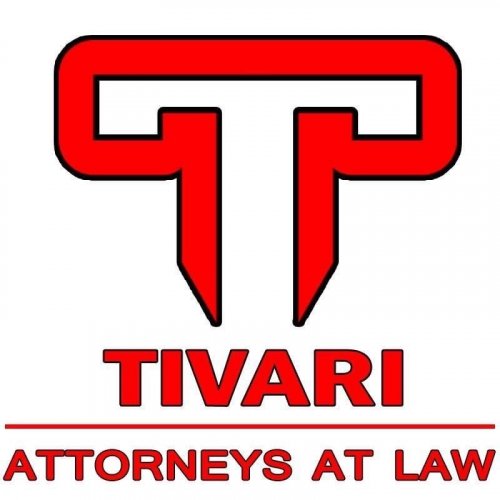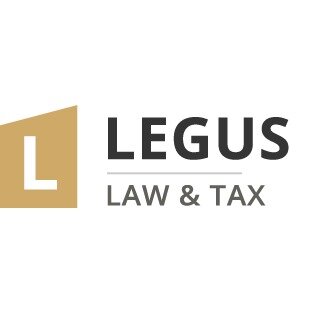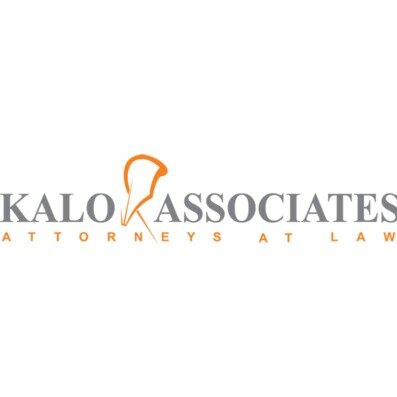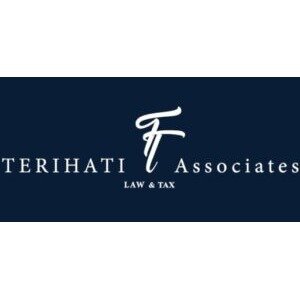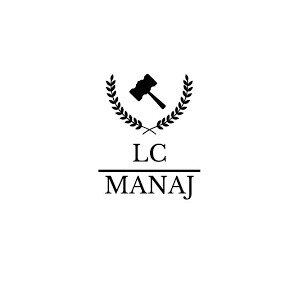Best Sustainable Finance Lawyers in Tirana
Share your needs with us, get contacted by law firms.
Free. Takes 2 min.
List of the best lawyers in Tirana, Albania
About Sustainable Finance Law in Tirana, Albania
Sustainable finance refers to financial services and investments that consider environmental, social, and governance (ESG) factors to ensure long-term economic growth and positive societal and environmental outcomes. In Tirana, Albania, the topic of sustainable finance has gained increased attention as Albania integrates European Union standards into its domestic regulatory framework and commits to international goals on sustainability and climate change. The government and private sector in Tirana are increasingly focused on sustainability practices, especially in banking, investment, and public-private partnerships. This legal field covers the structuring, regulation, and compliance matters related to green bonds, ESG reporting, sustainable investments, renewable energy projects, and more.
Why You May Need a Lawyer
Navigating the sustainable finance landscape in Tirana can be complex for individuals, businesses, and investors. You may require the guidance of a legal professional in situations such as:
- Understanding ESG obligations for your business or investment
- Drafting or reviewing contracts for green bonds, sustainable loans, or responsible investment products
- Ensuring compliance with both local and European Union standards on sustainability disclosures and reporting
- Managing legal risks associated with climate finance and renewable energy projects
- Structuring public-private partnerships for sustainable infrastructure projects
- Addressing regulatory requirements for corporate sustainability in capital markets or banking
- Challenging or responding to ruling by regulatory bodies on ESG breaches
- Assessing opportunities for government incentives related to sustainable finance
Legal counsel is crucial to interpret evolving laws, draft compliant documents, and mitigate risks effectively.
Local Laws Overview
Sustainable finance in Tirana is shaped by a mix of Albanian laws and wider European directives. Key local considerations include:
- Law on Investment Funds and Asset Management Companies - This law requires asset managers to consider ESG criteria where relevant and aligns with European standards.
- Bank of Albania Regulations - The central bank outlines prudential rules for commercial banks to encourage sustainable lending and integrate ESG risks into their credit risk management.
- Corporate Reporting Requirements - Businesses are increasingly required to disclose ESG and sustainability practices, especially if they are publicly listed or seeking foreign investment.
- Green Bonds Framework - Recent measures support the issuance of green bonds and specify use of proceeds for clearly defined environmental projects.
- Public Private Partnership (PPP) Laws - Rules encourage sustainable infrastructure projects, particularly in energy, transport, and urban development, to adhere to both local and international sustainability standards.
- Renewable Energy and Environmental Laws - Regulations govern project licensing, financing, and reporting in energy generation, waste management, and related fields with sustainability goals in mind.
Both Albanian regulators and the business community are adapting their practices to comply with European Green Deal principles and Sustainable Finance Disclosure Regulation (SFDR), strengthening the relevance of sustainable finance in Tirana.
Frequently Asked Questions
What is sustainable finance and how is it different from traditional finance?
Sustainable finance integrates environmental, social, and governance factors into financial decision-making, aiming for positive outcomes beyond profit. It differs from traditional finance by focusing on long-term impacts on society and the environment, not just short-term financial returns.
Do I need to comply with European Union regulations on sustainable finance if I operate in Tirana?
If you are a company with ties to the EU, such as seeking EU investment, exporting, or aiming for cross-border partnerships, you may need to comply with EU regulations. Additionally, Albania is working to align its domestic laws with EU standards, which increasingly affects local operations.
Are there incentives for businesses adopting sustainable finance practices in Tirana?
Yes. The Albanian government, sometimes in cooperation with international donors, offers incentives like tax relief, grants, and preferential loans for projects with clear sustainability benefits, particularly in energy, infrastructure, and agriculture.
What are green bonds and how are they used in Albania?
Green bonds are debt instruments used to raise funds exclusively for environmentally friendly projects. In Albania, legal frameworks are being developed to encourage their issuance, especially for renewable energy, urban renewal, and sustainable infrastructure.
How do I ensure my business is compliant with ESG reporting requirements in Tirana?
Consult local legal experts who are up-to-date on evolving reporting obligations. You will need to collect accurate data, analyze ESG risks and opportunities, and disclose your practices to stakeholders, often in line with both local and European guidelines.
What legal risks are associated with ignoring ESG criteria?
Ignoring ESG can expose you to regulatory fines, loss of investment opportunities, reputational damage, and increased scrutiny by stakeholders. Compliance reduces these risks and helps future-proof your operations.
Is sustainable finance relevant only for large companies and banks?
No. While larger institutions may be most affected by regulations, sustainable finance is relevant to businesses of all sizes, investors, entrepreneurs, and even non-profits seeking to align with modern financial standards and attract funding.
Can foreign investors participate in sustainable finance initiatives in Tirana?
Yes. Albania encourages foreign direct investment in sustainable sectors. There are legal procedures for entry and requirements for compliance with both local and international sustainability standards.
Who regulates sustainable finance in Tirana, Albania?
The Bank of Albania, the Financial Supervisory Authority, and respective ministries (such as the Ministry of Infrastructure and Energy) play primary roles in regulating sustainable finance activities.
How can I find a lawyer specialized in sustainable finance in Tirana?
Seek referrals from local industry associations, consult the Albanian Bar Association, or approach law firms with proven expertise in finance and ESG. Always verify credentials and experience before hiring.
Additional Resources
- Bank of Albania - Offers guidance and regulatory updates related to sustainable banking and finance.
- Albanian Financial Supervisory Authority (AFSA) - Regulates capital markets, insurance, and pension funds, including sustainable investment products.
- Ministry of Infrastructure and Energy - Oversees legal frameworks for renewable energy and sustainability projects.
- Albanian Investment Development Agency (AIDA) - Assists with investment incentives and sustainability opportunities.
- Albanian Chamber of Commerce and Industry - Provides business advice and legal referrals.
- Environmental NGOs and Sustainable Development Forums - Offer information on best practices, funding, and legal workshops related to ESG and sustainable finance.
Next Steps
If you need legal assistance in the field of sustainable finance in Tirana, start by defining your specific needs, such as compliance, contract drafting, or project structuring. Research and reach out to law firms or professionals with verified expertise in finance and ESG matters. Prepare relevant documents pertaining to your business or investment so your legal advisor can offer tailored guidance. Consider contacting the resources listed above for referrals or additional support. Acting proactively will help you successfully navigate regulatory requirements and maximize the benefits of sustainable finance in Albania.
Lawzana helps you find the best lawyers and law firms in Tirana through a curated and pre-screened list of qualified legal professionals. Our platform offers rankings and detailed profiles of attorneys and law firms, allowing you to compare based on practice areas, including Sustainable Finance, experience, and client feedback.
Each profile includes a description of the firm's areas of practice, client reviews, team members and partners, year of establishment, spoken languages, office locations, contact information, social media presence, and any published articles or resources. Most firms on our platform speak English and are experienced in both local and international legal matters.
Get a quote from top-rated law firms in Tirana, Albania — quickly, securely, and without unnecessary hassle.
Disclaimer:
The information provided on this page is for general informational purposes only and does not constitute legal advice. While we strive to ensure the accuracy and relevance of the content, legal information may change over time, and interpretations of the law can vary. You should always consult with a qualified legal professional for advice specific to your situation.
We disclaim all liability for actions taken or not taken based on the content of this page. If you believe any information is incorrect or outdated, please contact us, and we will review and update it where appropriate.





